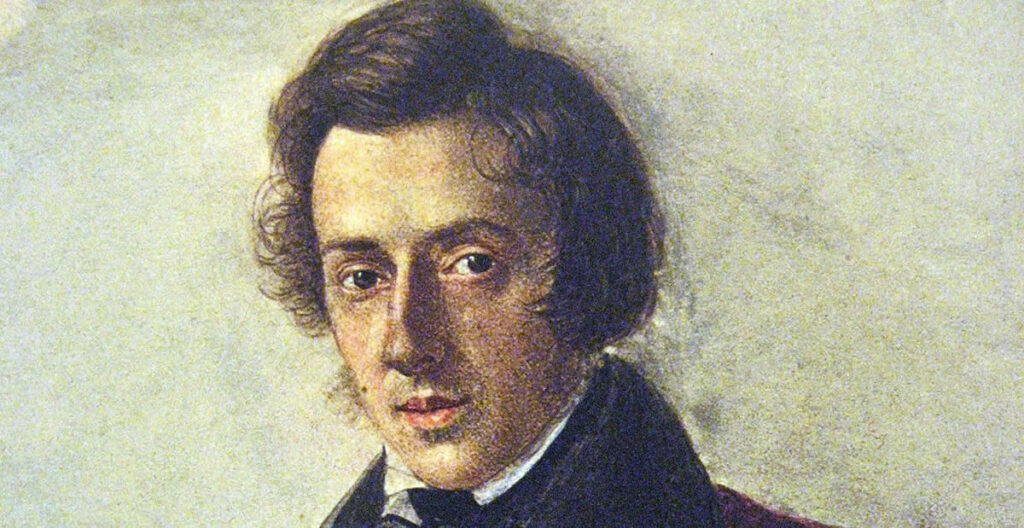Introduction:
Frédéric Chopin, born in 1810, was a Polish composer and pianist who left an indelible mark on the world of classical music. His profound compositions, exquisite melodies, and virtuosic piano skills continue to captivate audiences worldwide. In this blog post, we delve into the life and legacy of Frédéric Chopin, highlighting 10 fascinating facts that showcase his extraordinary talent and enduring influence.
- Early Musical Prodigy: Chopin displayed exceptional musical talent from an early age. He started playing the piano at the age of four and composed his first piece at the tender age of seven. His prodigious abilities caught the attention of music enthusiasts and paved the way for his illustrious career.
- Polish Nationalist Composer: Chopin’s music was deeply rooted in his Polish heritage. He incorporated elements of Polish folk music, dances like the mazurka and polonaise, and evoked a sense of national pride in his compositions. His works often served as a symbol of Polish resistance during the country’s struggle for independence.
- A Master of the Piano: Chopin’s exceptional prowess on the piano earned him a reputation as one of the greatest pianists in history. He possessed an extraordinary technique, delicate touch, and an ability to infuse his music with intense emotion. His piano compositions remain among the most challenging and revered in the repertoire.
- Enduring Love Story: Chopin had a passionate and tumultuous relationship with the French writer George Sand (Amantine Lucile Aurore Dupin). Their love affair lasted nearly a decade and inspired some of Chopin’s most poignant and introspective compositions. Despite their eventual separation, Sand remained an influential figure in his life.
- Exile in Paris: In 1830, Chopin left his native Poland and settled in Paris, which became his home for the rest of his life. The vibrant cultural scene of the city allowed him to thrive creatively and establish himself as a prominent figure in the musical circles of the time.
- Iconic Piano Etudes: Chopin’s set of 27 Études remains one of the most significant contributions to the genre. These pieces not only serve as technical exercises but also showcase his ability to fuse technical brilliance with artistic expression. Each étude presents a unique musical challenge, making them a staple in every aspiring pianist’s repertoire.
- Battle with Illness: Throughout his adult life, Chopin battled with poor health, likely caused by tuberculosis. Despite his fragile condition, he continued to compose and perform, creating music that reflected both his pain and his resilience. His ill health eventually led to his untimely death at the age of 39.
- Innovative Harmonic and Melodic Techniques: Chopin’s compositions revolutionized the harmonic and melodic possibilities of piano music. He introduced bold chromaticism, intricate ornamentation, and harmonic progressions that pushed the boundaries of traditional tonality. His music bridged the gap between the Classical and Romantic periods, paving the way for future generations of composers.
- Famous Nocturnes: Chopin’s Nocturnes are some of his most cherished and enchanting compositions. These lyrical and introspective pieces often feature a song-like melody accompanied by delicate harmonies. Through his Nocturnes, Chopin conveyed a range of emotions, from melancholy to profound serenity, captivating listeners with their timeless beauty.
- Lasting Legacy: Frédéric Chopin’s impact on the world of music cannot be overstated. His compositions continue to inspire and influence countless musicians, and his artistic vision transformed the way the piano is played and understood. His music, marked by its emotional depth and technical brilliance, remains beloved by audiences around the globe.
Conclusion:
Frédéric Chopin’s life and music are a testament to the power of artistic expression. His remarkable talent, innovative compositions, and enduring legacy make him one of the most revered figures in classical music history. As we listen to his works, we are transported to a world of beauty, passion, and emotional intensity—a world crafted by the genius of Frédéric Chopin.


Comments are closed